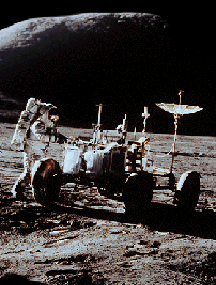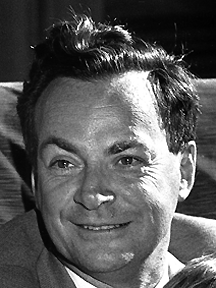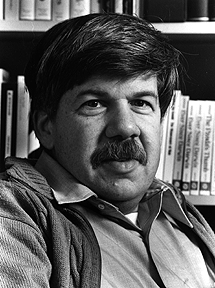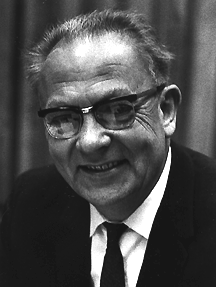Portrait of Wernher von Braun
NASA
Wernher von Braun
Wernher von Braun was a German engineer who lived between 1912-1977.
He is considered the father of the space age for his work in rocketry.
During the 1930's and 40's, Von Braun directed Germany's rocket
development program where he and his team of scientists built the famous
V2 rockets used against England during World War II. He later went to
work for the United States, where he helped to construct the powerful
Saturn V rockets which launched the Apollo missions to the Moon.
You might also be interested in:

What types of instructional experiences help K-8 students learn science with understanding? What do science educators teachers, teacher leaders, science specialists, professional development staff, curriculum designers, school administrators need to know to create and support such experiences?
...more
Rockets create thrust by burning fuel within a confined space and expelling the exhaust gases through a small opening, pushing the rocket in the other direction. They are able to generate the high speeds
...more
It was not long after the first space satellites were launched that we succeeded in getting a human being into space. These first astronauts and cosmonauts (the Russian word for astronaut) were test pilots
...more
Richard Feynman was an American physicist who lived between 1918-1988. He contributed to many areas of physics, including atomic theory and quantum electrodynamics, which studies electron behavior. Following
...more
Stephen Jay Gould was an American paleontologist who was born in 1941. He revised Darwin's theory of evolution, introducing his own concept of punctuated equilibrium. This states that evolution is not
...more
Evelyn Granville is an American mathematician who was born in 1924. She was one of the first black women in the United States to receive a Ph.D. in mathematics. She has made many contributions to NASA's
...more
Stephen Hawking is an English
...more
Gerard Kuiper was an American astronomer who lived between 1905-1973. He is considered the father of modern planetary science for his brilliant study of our solar system. Kuiper developed new techniques
...more















